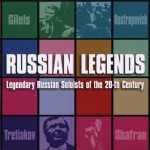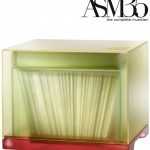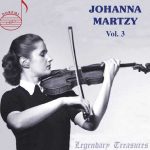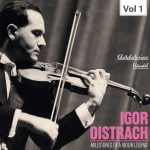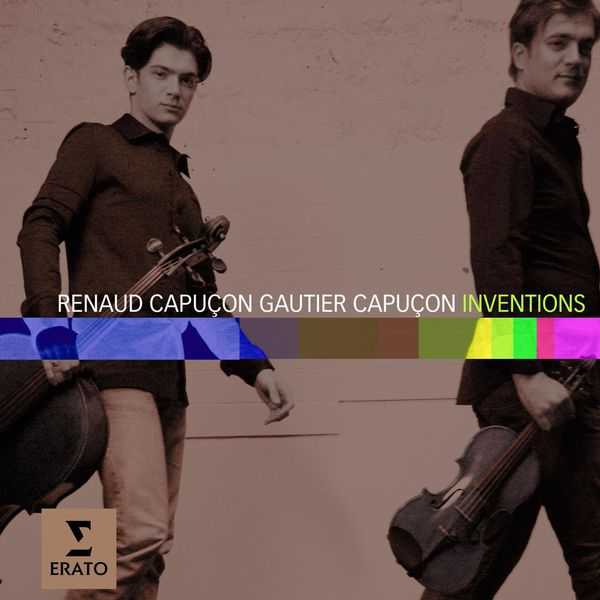
Composer: Johann Sebastian Bach, Béla Bartók, Karol Beffa, Hanns Eisler, Gideon Klein, Fritz Kreisler, Bohuslav Martinů
Performer: Gautier Capuçon, Renaud Capuçon
Format: FLAC (tracks)
Label: Erato
Catalogue: 3326262
Release: 2006
Size: 321 MB
Recovery: +3%
Scan: cover
Bach: Duos for violin and cello (tr. Frederick Neumann)
01. Two-Part Invention No. 8 in F Major, BWV 779
French Suite No. 2 in C Minor, BWV 813
02. IV. Air
The Well-Tempered Clavier, Book I, Prelude and Fugue No. 5 in D Major, BWV 850
03. Prelude
French Suite No. 2 in C Minor, BWV 813
04. V. Menuet
English Suite No. 3 in G Minor, BWV 808
05. V. Gavottes I & II
English Suite No. 2 in A Minor, BWV 807
06. VII. Gigue
07. Two-Part Invention No. 13 in A Minor, BWV 784
Eisler: Duo pour violon & violoncelle Op. 7 No 1:
08. I Tempo di minuetto
09. II Allegretto vivace
Beffa: Masques
10. I (Modéré)
Bartók: For Children, Sz. 42 “Hungarian Folk Melodies”
11. No. 30, Jeering Song. Allegro ironico
12. No. 19, Allegretto
13. No. 26, Moderato
14. No. 28, Choral. Andante
15. No. 34, Allegretto
16. No. 35, Con moto
17. No. 36, Drunkard’s Song. Vivace
Beffa: Masques
18. II (Rythmiquement et souple)
Klein: Duo pour violin & violoncelle (Composed in a concentration camp)
19. I Allegro con fuocoo
20. II Lento (inacheve)
Martinů: Duo pour violon & violoncelle No 2 H.371
21. I Allegretto
22. II Adagio
23. III Poco allegro
24. Kreisler: Marche miniature viennoise
If you’re put off by the idea of a whole CD of just violin and cello (Aude Capuçon only joins brothers Renaud and Gautier for the final three minutes), think again! There’s an impressive range both in the music, with its central-European theme, and the performances. The Bach transcriptions are splendidly spirited and stylish; one minor fault – difficult to avoid when playing Bach with a modern bow – is a tendency to exaggerate dynamic inflexions and the difference between long and short notes. The Bartók arrangements are wonderfully colourful and evocative; with such short pieces it’s crucial to establish the character straight away, and the Capuçons do this every time.
The items by Karol Beffa were written expressly for the brothers. Each starts in meditative mood, with unclouded tonality, developing more complicated formulations as it proceeds, and each makes masterly use of the instruments’ sonorities. The Martinu, dating from the year before his death in 1959, sounds remarkably full. The first movement is particularly attractive – if you imagine a mixture of Stravinsky and Dvorák, you’d be close. The Eisler, by contrast, is an early work, full of expressionistic outbursts, realised here with extreme vividness. The unfinished Duo by Gideon Klein (a young Holocaust victim) is rather more sober, intensely chromatic but not especially dissonant, and with powerfully concentrated melancholy expression.
All this music has a strong sense of time and place. Fritz Kreisler nostalgically evokes the Vienna of Johann Strauss, and here again the Capuçons get right into the idiom.
